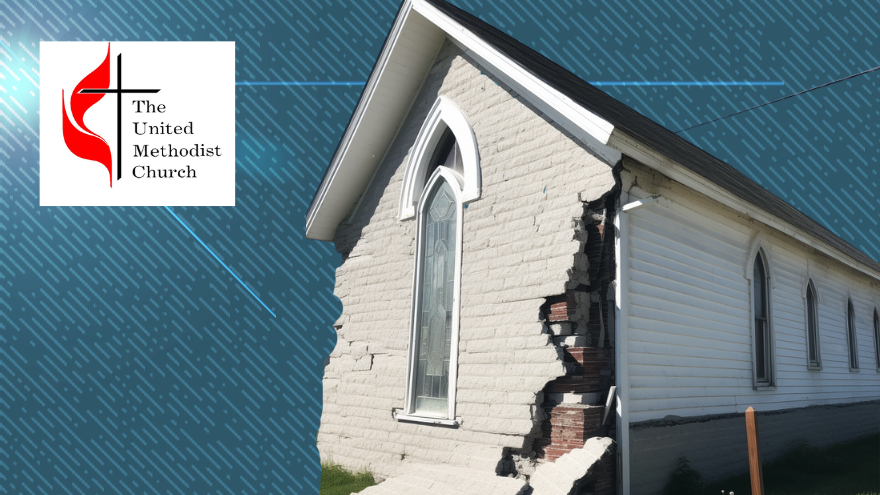A group of 186 United Methodist churches in Georgia has sued their denomination’s regional leadership to be allowed to formally break with the church over differing views on marriage and sexuality.
The churches were ordered to temporarily pause their split with the UMC North Georgia Conference on Dec. 28, 2022.
The disaffecting church is seeking to be permitted to continue with its disaffiliation and to retain control of certain assets, including property.
The United Methodist Church is the second-largest Protestant denomination in the United States. In recent years, the Christian denomination has been unable to reconcile increasingly conflicting factions of theology among its parishes — largely over LGBTQ issues. In 2019, the UMC General Conference voted 438-384 to maintain its ban on officiating same-sex marriage ceremonies and its prohibition on the ordination of LGBTQ clergy.
Since then, over 2,000 churches – both congressive and progressive – have voted to disaffiliate from the church.
Four Methodist congregations in Maine disaffiliated from the UMC in April of 2019, arguing the General Conference vote constituted discrimination “toward LGBTQ community members.”
Some traditionalist members of the UMC have said more progressive parishes have ignored the General Counsel’s ban and thereby have undermined the religion’s collective theology.
“[Liberal clergy] are the ones who are not abiding by the pronouncements of our General Conference, which speaks for the entire church,” Reverand Keith Boyette told Fox News Digital in June of 2022. “So they’re acting in violation of the provisions of our Book of Discipline, which undermines the effectiveness of the church.”
More than 400 Methodist churches in Texas voted in December to leave their regional conferences for governing bodies that define marriage as being between one man and one woman. The vote brought the total number of Methodist churches in Texas leaving the UMC to 45%.
The disaffecting church complained in their court filing that the UMC North Georgia Conference is threatening “to destroy these religious congregations and deprive them of their property rights.” They argue that “less than one year ago” the conference recognized the right of 70 other congregations to disaffiliate and therefore have an established “course of dealing and course of conduct under the rights afforded congregations pursuant to the [Paragraph 2553] of the United Methodist Church Book of Discipline.”
Part of the conflict centers on the UMC’s trust clause which has been maintained since the 18th century when it was established by John Wesley, the denomination’s founder. Under the clause, all properties owned by the church are held in a trust. In 2019, a special General Conference said the congregations said disaffiliating churches could have their properties released from the trust if they met certain conditions defined in Paragraph 2553. This includes the payment of two years of apportionments, the payment of any debts or loans, the cost of legal work including title transfer, and the payment of a fair share of unfunded clergy pensions as determined by the annual conference.
“Defendants, acting wrongfully, in bad faith, and ultra vires beyond the limits on their powers, have conspired to deprive Plaintiffs of their valuable property rights created by [Parargraph 2553]; to wit, the right to vote on withdrawal from the UMC with their property intact,” states the lawsuit. “Defendants have conspired to ‘run out the clock’ on Planiffs’ ability to utilize [Paragraph 2553] by a combination of ultra vires actions, fraudulent misrepresentations, and promises which they have failed to keep so that, unless this Court intervenes, plaintiffs cannot and indeed will not be allowed to fulfill the legislated requirements of [Paragrpah 2553] in time to meet the sunset date.”
The North Georgia Conference previously told the churches that there was widespread and “defamatory” misinformation and that they would have to revisit the disaffiliation process at the next General Assembly meeting which is currently scheduled for April 24 through May 3, 2024 in Charlotte, North Carolina, per UM News.
The lawsuit was filed in Cobb County Superior Court in Marietta, Georgia.
